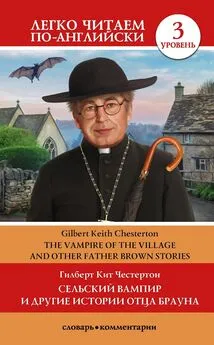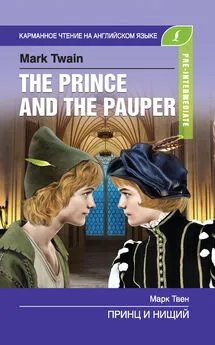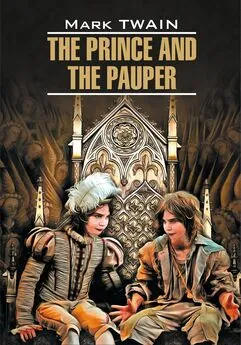Oscar Wilde - The Happy Prince and Ohter Tales
- Название:The Happy Prince and Ohter Tales
- Автор:
- Жанр:
- Издательство:неизвестно
- Год:неизвестен
- ISBN:нет данных
- Рейтинг:
- Избранное:Добавить в избранное
-
Отзывы:
-
Ваша оценка:
Oscar Wilde - The Happy Prince and Ohter Tales краткое содержание
The Happy Prince and Ohter Tales - читать онлайн бесплатно полную версию (весь текст целиком)
Интервал:
Закладка:
“Now it happened (и случилось так) that one evening little Hans was sitting by his fireside (что однажды вечером маленький Ганс сидел у своего камелька; fireside — место у камина) when a loud rap came at the door (когда раздался громкий стук в дверь; rap — легкий удар, /негромкий/ стук; to come (came, come) — приходить; раздаваться /о звуке/) . It was a very wild night (той ночью была сильная буря: «это была очень штормовая ночь»; wild — дикий; штормовой, бурный) , and the wind was blowing and roaring (и ветер дул и ревел) round the house so terribly (вокруг домика так ужасно) that at first he thought (что поначалу он подумал) it was merely the storm (что это была просто буря = просто шум бури) . But a second rap came (но раздался второй стук) , and then a third (и затем третий) , louder than any of the others (более громкий, чем другие: «любые из /двух/ других») .
happen['hæpən ] fireside ['faiəsaid ] merely ['miəli ]
“So little Hans worked away for the Miller, and the Miller said all kinds of beautiful things about friendship, which Hans took down in a note-book, and used to read over at night, for he was a very good scholar.
“Now it happened that one evening little Hans was sitting by his fireside when a loud rap came at the door. It was a very wild night, and the wind was blowing and roaring round the house so terribly that at first he thought it was merely the storm. But a second rap came, and then a third, louder than any of the others.
“‘It is some poor traveller (это какой-нибудь несчастный путешественник; poor — бедный; несчастный) ,’ said little Hans to himself (сказал себе Ганс) , and he ran to the door (и он побежал к двери) .
“There stood the Miller (там стоял Мельник) with a lantern in one hand (с фонарем в одной руке) and a big stick in the other (и большой палкой в другой) .
“‘Dear little Hans (дорогой маленький Ганс) ,’ cried the Miller (воскликнул Мельник) , ‘I am in great trouble (я в большой беде; trouble — беспокойство; неприятность, беда) . My little boy has fallen off a ladder (мой маленький сын: «мальчик» упал с лестницы; to fall (fell, fallen)) and hurt himself (и ушибся; to hurt — причинять боль; повредить, ушибить, ударить) , and I am going for the Doctor (и я иду за Доктором) . But he lives so far away (но он живет так далеко) , and it is such a bad night (а ночь такая ужасная: «плохая») , that it has just occurred to me (что мне как раз пришло в голову; to occur — случаться; приходить на ум) that it would be much better (что было бы гораздо лучше) if you went instead of me (если бы ты пошел вместо меня; to go (went, gone)) . You know I am going to give you my wheelbarrow (ты же знаешь, что я собираюсь подарить тебе мою тачку) , and so, it is only fair (и поэтому, это совершенно: «только/исключительно» справедливо; fair — честный, справедливый) that you should do something for me in return (что бы ты сделал что-нибудь для меня взамен; return — возвращение; отдача, возврат, возмещение) .’
traveller ['træv(ə)lə ] lantern ['læntən ] hurt [hə:t ] instead [in'sted]
“‘It is some poor traveller,’ said little Hans to himself, and he ran to the door.
“There stood the Miller with a lantern in one hand and a big stick in the other.
“‘Dear little Hans,’ cried the Miller, ‘I am in great trouble. My little boy has fallen off a ladder and hurt himself, and I am going for the Doctor. But he lives so far away, and it is such a bad night, that it has just occurred to me that it would be much better if you went instead of me. You know I am going to give you my wheelbarrow, and so, it is only fair that you should do something for me in return.’
“‘Certainly (конечно же) ,’ cried little Hans (воскликнул маленький Ганс) , ‘I take it quite as a compliment (я считаю это прямо за честь; compliment — комплимент; любезность) your coming to me (что вы пришли ко мне) , and I will start off at once (и я немедленно отправлюсь в путь /за доктором/) . But you must lend me your lantern (но вы должны одолжить мне ваш фонарь; to lend — давать взаймы, на время) , as the night is so dark (ведь ночь такая темная) that I am afraid (что, я боюсь) I might fall into the ditch (как бы я не свалился/упал: «я, может даже, свалюсь» в канаву; ditch — ров, канава) .’
“‘I am very sorry (мне очень жаль) ,’ answered the Miller (ответил Мельник) , ‘but it is my new lantern (но это мой новый фонарь) , and it would be a great loss to me (и для меня было бы огромной потерей; loss — потеря, ущерб, урон) if anything happened to it (если бы с ним что-нибудь случилось) .’
“‘Well, never mind (ну, не беда; never mind — ничего, пустяки, не обращайте внимание) , I will do without it (я обойдусь без него; to do without smth. — обходиться без чего-либо) ,’ cried little Hans (воскликнул маленький Ганс) , and he took down his great fur coat (и он снял /с вешалки/ свою большую шубу; to take (took, taken) down — снимать /со стены, полки и т.д./, fur — мех, coat — пиджак; верхняя одежда, пальто) , and his warm scarlet cap (и свою теплую красную шапку) , and tied a muffler round his throat (и повязал шарф вокруг шеи: «горла»; to tie — связать, привязать) , and started off (и отправился в путь) .
compliment['kOmplimənt ] without[wi'ðaυt ] throat[θrəυt]
“‘Certainly,’ cried little Hans, ‘I take it quite as a compliment your coming to me, and I will start off at once. But you must lend me your lantern, as the night is so dark that I am afraid I might fall into the ditch.’
“‘I am very sorry,’ answered the Miller, ‘but it is my new lantern, and it would be a great loss to me if anything happened to it.’
“‘Well, never mind, I will do without it,’ cried little Hans, and he took down his great fur coat, and his warm scarlet cap, and tied a muffler round his throat, and started off.
“What a dreadful storm it was (что за ужасная была буря; dread — страх, ужас) ! The night was so black (ночь была так темна; black — черный, темный) that little Hans could hardly see (что маленький Ганс с трудом/едва мог видеть) , and the wind was so strong (и ветер был так силен) that he could scarcely stand (что он едва мог стоять /на ногах/) . However, he was very courageous (тем не менее, он был очень мужественен; courage — мужество, храбрость) , and after he had been walking about three hours (и, прошагав около трех часов; to walk — ходить, идти пешком) , he arrived at the Doctor’s house (он добрался до дома Доктора; to arrive — прибывать) , and knocked at the door (и постучал в дверь) .
“‘Who is there (кто там) ?’ cried the Doctor (прокричал Доктор) , putting his head (высовывая голову; to put out — вытягивать, высовывать) out of his bedroom window (из окна своей спальни) .
“‘Little Hans, Doctor (это /я/, маленький Ганс, Доктор) .’
“’What do you want, little Hans (что ты хочешь = что тебе нужно, маленький Ганс) ?’
“‘The Miller’s son has fallen from a ladder (сын Мельника упал с лестницы) , and has hurt himself (и расшибся: «повредил себе / сделал себе больно») , and the Miller wants you to come at once (и Мельник хочет = просит, чтобы вы немедленно приехали) .’
storm [stO:m ] scarcely['skeəsli ] courageous [kə'reidζəs ]
“What a dreadful storm it was! The night was so black that little Hans could hardly see, and the wind was so strong that he could scarcely stand. However, he was very courageous, and after he had been walking about three hours, he arrived at the Doctor’s house, and knocked at the door.
Читать дальшеИнтервал:
Закладка:
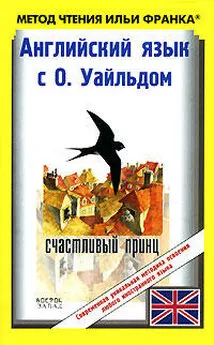
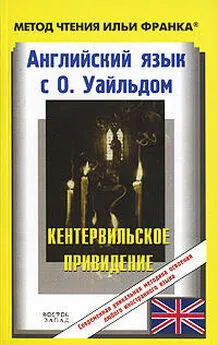
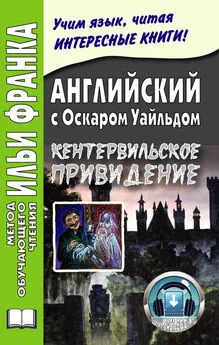
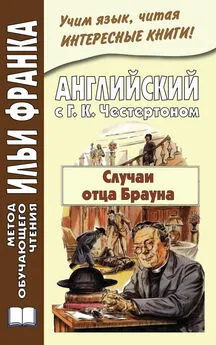
![О Генри - Принцесса и пума [The Princess and the Puma]](/books/1076182/o-genri-princessa-i-puma-the-princess-and-the-pum.webp)
